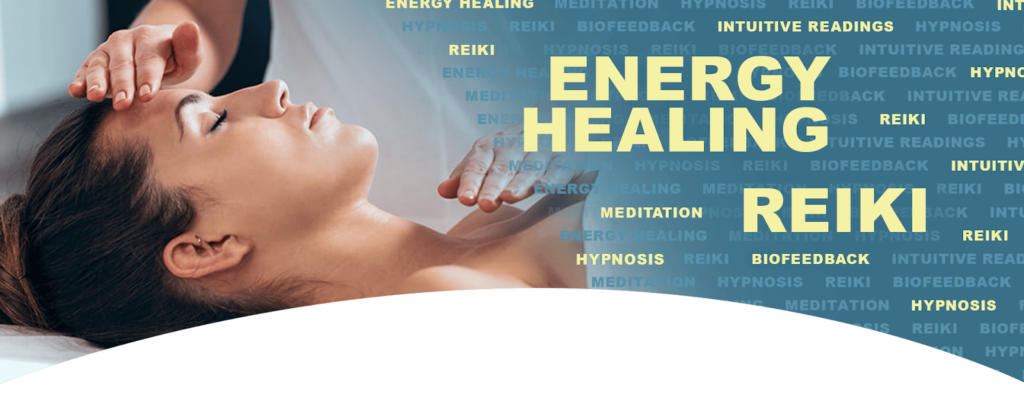
The idea of energy does play an important role in understanding and treating various health issues when it comes to alternative medicine. Energy analysts interact with subtle body energies, thereby promoting healing. So, explore the function of these practitioners through this blog.
What Is Energy in Alternative Medicine?
In alternative medicine, energy refers to a vital force or field believed to influence physical, emotional, and spiritual health.
Before discussing what an energy analyst does, it is important to comprehend the idea of energy in alternative medicine. According to many traditional healing systems like Traditional Chinese Medicine (TCM) or Ayurveda, it is based on the belief that vital life force moves throughout our bodies. Various names are used for this force such as prana, qi or simply “life force”.
Energy analysts deal with these subtle energies that affect physical, emotional and spiritual well-being. They assume that imbalances produced by energy flow interrupts our bodies leading to diseases and discomforts.
What Is The Role of an Energy Analyst?
In alternative medicine, an energy analyst assesses and interprets the flow and balance of energy within the body, helping practitioners develop treatments to address imbalances and promote overall wellness.
Within the domain of complementary medicine, these practitioners perform analysis of various forms related to energies within human organisms. Their main task is to determine particular health issues caused by unbalanced levels of energy.
It involves visioning the energetic field around the body, which is often referred to as colored halo. The practitioners study the body’s energy points, known as chakras energy in traditional Eastern cultures. They check the flow of energy along the body’s pathways as described in TCM.
A sensitivity-based approach is used to identify places with energetic imbalance or blockage.These assessments can be done by either using their hands, special tools or even modern technology.
What Are Some Energy Balancing and Healing Techniques?
Energy balancing and healing techniques include Reiki, acupuncture, Qi Gong, therapeutic touch, and crystal healing, all aimed at restoring balance and harmony within the body’s energy fields.
Energy analysts identify where there are imbalances or blockages and use a variety of techniques to restore equilibrium and enable healing.
Reiki, a Japanese technique that involves the practitioner channeling universal life energy into the client through gentle touch or by moving their plans over the body.
Acupuncture stimulates certain points on the meridians of the body with needles to promote adequate flow of Qi/energy. Pranic healing employs prana (life force) to balance and harmonize a person’s energies.
Quantum Touch heightens energy vibrations. It helps the restoration of a client’s health. Sound therapy involves using specific sound frequencies to affect an individual’s bio-energy field, thereby promoting their equilibrium.
Do Energy Analysts Collaborate with Other Healthcare Providers?
Yes, energy analysts in alternative medicine often collaborate with other healthcare providers to integrate energy healing with conventional treatments and ensure comprehensive, holistic patient care.
Many energy analysts work as part of a holistic healthcare team, collaborating with other practitioners to provide comprehensive care. It involves ensuring coordinated care through interaction with clients’ primary physicians, referring customers to other alternative or traditional health professionals.
They also combine energy healing modalities with other therapies like massage therapy and counseling. They participate in case discussions across disciplines for the formulation of comprehensive treatment plans.
By taking this collaborative model, the energy analyst brings their unique perspective into a patient’s wellbeing.
Why Is Ongoing Professional Development Necessary?

Ongoing professional development is necessary for energy analysts to stay current with evolving techniques, enhance their skills, incorporate new research, and ensure effective, evidence-based practice.
Energy analysts stay updated with new developments in Energy medicine just like any other health profession. They should be engaged in continuous learning and professional development activities like latest research on Energy Medicine, attending seminars, etc.
It will contribute to the growing body of evidence on Energy Healing by participating in research studies.
By engaging in regular education, energy analysts can enhance their skills and provide optimal care for their clients.
What Is The Importance of Ethical Analysis in Energy Analysis?
Ethical analysis ensures energy analysis in alternative medicine respects patient autonomy, maintains integrity, and provides safe, effective, and honest treatments.
Clients’ safety and welfare demand that energy analysts maintain the highest ethical standards. These guidelines include keeping professional boundaries, receiving permission to heal with energy, admitting their limitations, etc.
They should never claim to cure any particular disease or take over from normal medical treatments.
Observance of these ethics principles helps to ensure that energy healing remains a viable complementary modality to health and wellness.
How much do energy analysts make in the US?

Energy analysts in alternative medicine in the US typically earn between $40,000 and $70,000 annually, depending on experience and location.
The salaries of alternative medicine energy analysts range from $50,000 to $80,000 per year depending on various factors such as experience levels, location, and types of practices.
Some may even receive more money for having advanced certifications or a robust client base. They can also get benefits like schedules which are flexible and chances for private ventures.
What are the roles and responsibilities of an energy specialist?
An energy specialist assesses and balances energy fields, identifies blockages, provides healing treatments, and collaborates with other practitioners to enhance overall wellness and address specific health concerns.
An alternative medicine practitioner who deals with energies assesses, manipulates, and balances the body’s energy fields to create conditions necessary to promote the healing process.
This includes carrying out different evaluations on energies by using such modalities such as Reiki or acupuncture, developing personalized care programs, teaching about things like crystal therapy, and referring clients to other healthcare facilities when required.
Conclusion
Energy analysts are the main players in alternative medicine, and they operate by correcting subtle forces that flow through the body through therapeutic effects. In their work, they evaluate health issues, rebalance energy, teach clients how to do it themselves and participate in discussions with other health workers offering holistic treatments.

